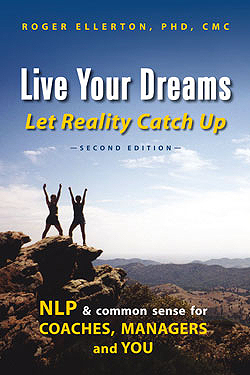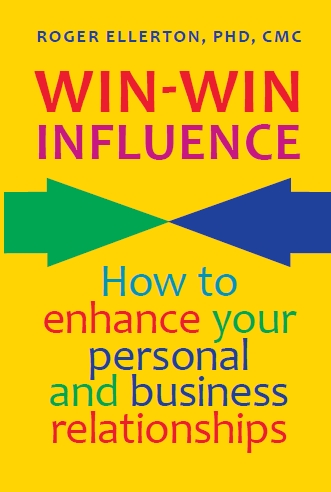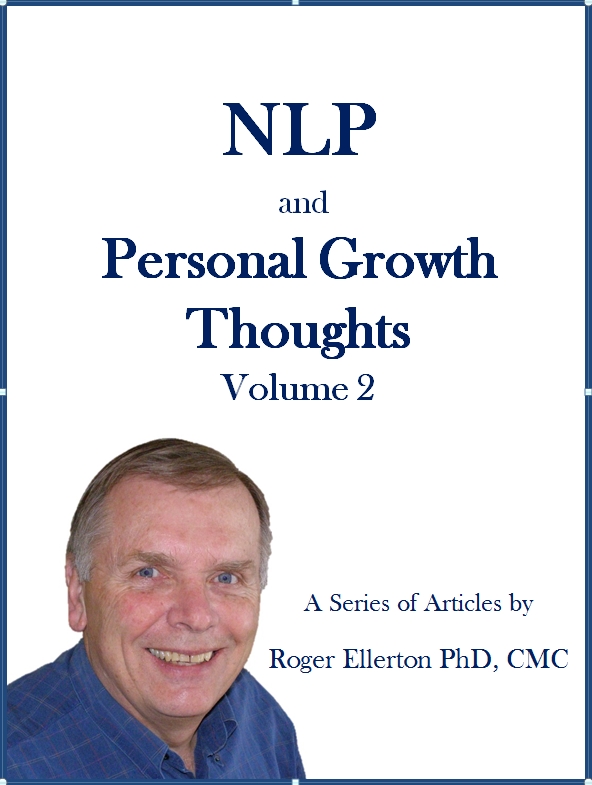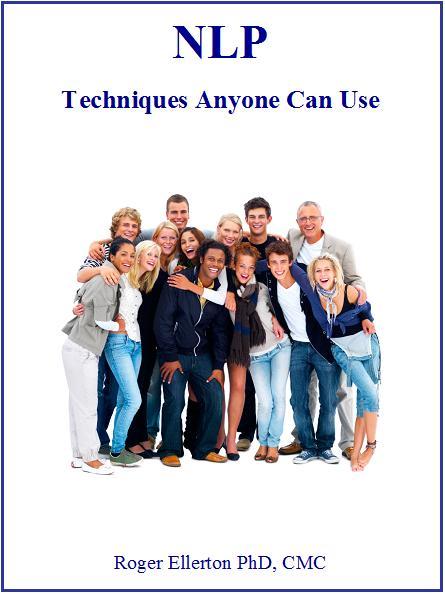Preframing
By Roger Ellerton Phd, ISP, CMC, Renewal Technologies Inc.
This article may not be republished without written permission from Roger Ellerton/Renewal Technologies Inc. If you republish this article without permission, you will be in violation of copyright law and sent an invoice. You may share this and other pages with your friends by linking directly to this page from your website or blog.
You often hear people talking about frames, reframes and preframes. So what are they?
Frames (of reference) simply provide a context, meaning or focus for your thoughts and actions. For example, an outcome frame provides a focus for what you, your team or client want to achieve, including the resulting effects and the resources required to achieve it. An evidence frame, which is part of the outcome frame, is focused on how you will know when you have achieved your outcome. That is, what will you see, hear, feel or experience?
Please see the article Frames for a more complete discussion on frames.
Just as a picture frame puts borders or boundaries on what you can see in a picture, the frames of reference that you choose as a result of your beliefs about yourself and others, your perceived role in life, your perceived limitations in skills/abilities, etc. can limit what you see as possible or can open up all sorts of possibilities. You (and if you allow them, others) are continually setting timeframes, boundaries, limits, etc. on what you can and can't do - often without any real thought about the consequences or if the limitations are true.
Changing the frame of an experience can have a major influence on how you perceive, interpret and react to that experience. Being told that you have one hour to complete a task will most likely result in a different emotional state, approach and quality of work than if you are told that you have one week to accomplish the same task. This illustrates how changing a frame (in this case a timeframe) can have a significant impact on the choices you make. Changing the frame of reference is called reframing in NLP. The purpose of reframing is to help a person experience their actions, the impact of their beliefs, etc. from a different perspective (frame) and potentially be more resourceful or have more choice in how they react.
Please see the article Reframing for a more complete discussion on reframing.
A preframe is usually part of the frame or the setup for an activity or action and is used to anticipate an objection or result that may distract from the objective set in the frame. For example, I am an NLP trainer and an essential part of an NLP training is for students to experience a significant change/shift in how they see themselves, others or the world around them. To accomplish this they must step out of the world of "what you know you know" into the world of "what you don't know you don't know" (See the article Structure of Reality). Often when people fully and truly step into the world of "what you don't know you don't know", they may experience confusion or their mind may go blank. If they are not prepared for this, they may not feel safe or lose faith in the process and not wish to proceed further. Preframing this possible experience by saying something like, "At some point, you may experience confusion or your mind may go blank and I think this is great, because it indicates you have stepped out of your current world that is holding you back and are now in a new place that opens up the possibility of exploring new ideas and ways of being." Given that the students have accepted my preframe, then later during the class, they are OK if they experience confusion or their mind goes blank and are more likely to fully explore what is possible for them.
Preframing can be used to inform others as how they may choose to perceive a product, service, idea or person. For example, if I introduced you to an audience and began with, "It's not often that you get to introduce a hero.", then I have directed their expectations and view of you in a certain direction.
In a sales context, you can anticipate and preframe potential major objections from your client or key points your competition may raise and handle them well before you present your product/service/idea and hence avoid being derailed at an inappropriate time.
Be aware that your behaviors (past and current), as perceived and interpreted by others, preframe current and subsequent conversations/interactions. That is, based on how you have interacted with others or what you have accomplished to date, people will make a decision about how trustworthy you are, to what degree your ideas will be considered and whether or not you have the expertise/ability to deliver what you promise. Here, behaviors are interpreted in a wide context, for example, the words you use, your tone of voice, your body language, the way you dress and who you choose as friends.
Author: Roger Ellerton is a certified NLP trainer, certified management consultant and the founder and managing partner of Renewal Technologies. The above article is based on his book Live Your Dreams Let Reality Catch Up: NLP and Common Sense for Coaches, Managers and You.
Copyright © 2010 Renewal Technologies Inc. All rights reserved.








